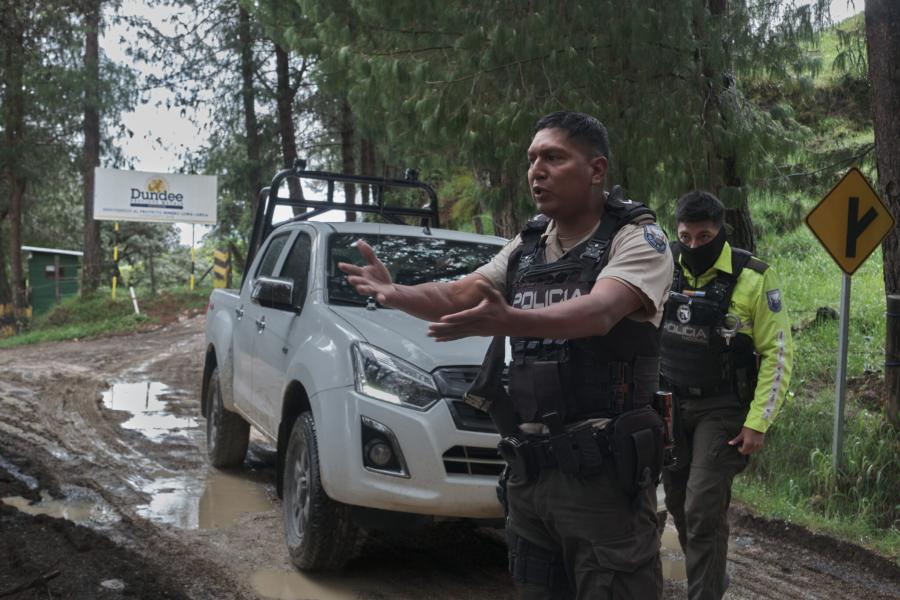We Are All Crees
On March 22, 1993, Grand Chief MathrewCoon Come of the Grant Council of the Cree addressed the Joint Energy Committee of the Massachusetts legislature. Massachusetts is deciding whether to end its commitments to buy electricity from the Great Whale Project and other hydroelectric developments in Quebec, thereby supporting the cause of the Cree and environmentalists who want these projects canceled or changed.
The article is excerpted from his testimony to the legislature.
I have traveled here from the traditional lands of my people, the James Bay Cree. We call these lands Eeyou Astchee. We are a people of 12,000, and we have lived on the east coast of the James and Hudson bays since time immemorial. We have always hunted, fished, and trapped to survive, and still do.
The issue before you is whether the impacts of energy purchases by the Commonwealth of Massachusetts from other sources should be subject to social and environmental assessment under the laws of this state. Hydro-Quebec and the governments of Canada and Quebec will indicate a number of objections. Your initiative, they will say, is contrary to principles of international relations and will greatly harm relations between Massachusetts and Canada and Quebec.
They will tell you that this initiative is unnecessary because there are no fewer than five impact assessment processes in place, and that the quality of these processes is unequaled. They will tell you that the environmental and other human rights of the James Bay Cree are fully protected and assured, including by the much-touted James Bay and Northern Quebec Agreement of 1975.
Canada, Quebec, and Hydro-Quebec are wrong. Your legislation is the right thing to do. It is the right thing to do from a perspective of the environment. It is the right thing to do from the perspective of energy policy. It is the right thing to do because the people of Massachusetts and the United States can be counted upon the act in favor of vulnerable peoples. Otherwise it will not be much longer before the last hunting societies of North America will be no more.
How do we know these things? We know because since the 1970s, the Cree way of life has been devastated by the first phase of these massive hydroelectric developments. Tens of thousands of square miles of muskeg lands, caribou calving grounds, and fish, waterfowl, and migratory bird habitats have been flooded. Whole river systems have been dried up or diverted to create vast reservoirs. The sea ice has been disturbed, affecting the ecology of James and Hudson bays upon which the Crees, beluga whales, and polar bears depend.
Our hunting grounds and ancestral burial grounds that are not already underwater are, or will be, crisscrossed by transmission lines and networks of roads, airports, and workers' camps. The ancient fishery, on which my people depend spiritually, socially, and economically, has been all but destroyed by mercury contamination. The Crees themselves have been contaminated. The same contamination will be an inevitable product of the proposed second phase of this monstrous undertaking.
If James Bay Phase II goes ahead, at least seven more major North American rivers will be diverted, dried up, or flooded. A natural area with tens of thousands of miles of shoreline with healthy wildlife will become a series of vast managed storage tanks where water is contained and released in perverse, seasonally inverted cycles.
Quebec and Hydro-Quebec claim that the 1975 agreement extinguished my people's aboriginal rights, in particular to our lands. They claim we consented to all hydroelectric developments on our lands. They claim we have agreed to all impacts, foreseen or unknown, such as mercury poisoning and the loss of our culture and way of life. They claim we gave up the right to oppose these projects.
Ask any Cree old enough to remember 1975: we did not agree to these things. No people can consent to something that, in effect, amounts to its demise as a people.
Quebec and Hydro-Quebec also claim that the Crees have received many benefits, that since the 1975 agreement, more than a billion dollars has been spent on us. It is true that my people have received some benefits, but these are all benefits that non-native Canadians receive as rights. We are only given schools, clinics, sewers, and certain local government rights in exchange for our fundamental rights. And in many cases, government promises have not materialized. What has materialized are things to which we would never have agreed: mercury poisoning, suicide, dependence, societal breakdown, and the loss of our way of life and our identity as a distinct people. As for all the money spent on us since 1975, expenditures by all levels of government on the Crees have been lower than the Canadian per capita average. Before they wanted our lands and waters in 1971, governments had no interest in us, and gave us nothing.
I have said it before and will say it once more: If we had known or been told what was involved, we would never have signed the James Bay and Northern Quebec Agreement. Its terms are not honorable, and they have not been honored. Quebec's dream for the North has become our nightmare.
But knowing the behavior of the animals, we have decided that unlike the red fox, which slinks away to its hole when there is danger, we will not hide. We have come out to defend our lands, our waters, our way of life, and our fundamental status and rights. The Crees are the victims of environmental racism.
We are heartened that we aren't alone in this struggle. Our environment is your environment. Our water is your water. If our rights are abused, all peoples' dignity is diminished.
Many years ago, President Kennedy went to another people and said he was a Berliner. My people understand the resolution being discussed today. We believe it says, "We are all Crees."
Article copyright Cultural Survival, Inc.



